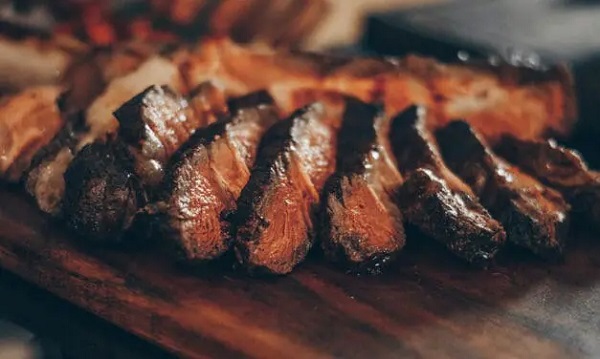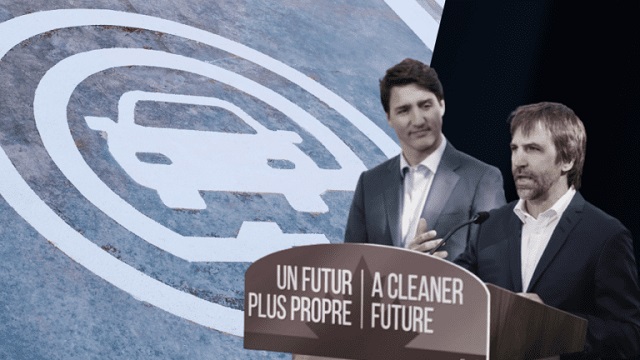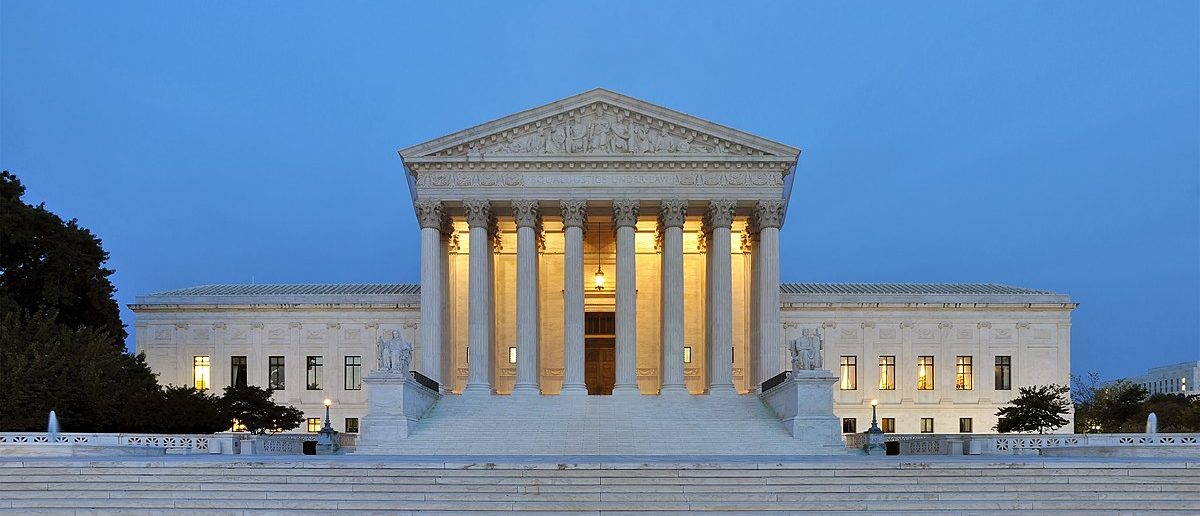Business
Beef is becoming a luxury item in Canada

This article supplied by Troy Media.
 By Sylvain Charlebois
By Sylvain Charlebois
Canadian beef prices have surged due to a shrinking cattle herd, high transportation costs, and potential market collusion
With summer weather settling in, Canadians are returning to a familiar ritual—ring up the barbecue. But as they approach the meat counter, many are faced with shockingly high prices. This year, the meat aisle has become a case study in supply-side economics and market dysfunction, leaving
consumers to wonder how this all came to be.
Since January, according to Statistics Canada, beef prices have surged dramatically. Striploin is up 34.2 per cent, top sirloin 33.7 per cent, and rib cuts nearly 12 per cent. Pork rib cuts and chicken breasts have each risen 5.9 per cent, while even meatless burger patties are 6.8 per cent more
expensive. Beef has led the way in these increases, and its dominance in the price hikes is striking. What’s particularly concerning is that it’s not just one cut of beef—virtually every option has seen a dramatic jump, putting pressure on Canadian consumers who were already grappling with rising food costs.
The cause behind these increases lies in Canada’s shrinking beef cow inventory, now at just 3.38 million head—the lowest since 1989. This represents a 1.2 per cent drop from last year, but it signals much more than a cyclical decline. Many cattle producers, facing an increasingly volatile market, are choosing to exit the industry while prices are favourable. Others are opting to reinvest in less risky sectors or even shift entirely to crop production, leaving the beef industry in a precarious state. In short, Canada’s beef industry is retreating, and with that retreat comes rising prices, fewer available cattle, and growing uncertainty.
South of the border, the U.S. is seeing a similar trend, but far less severe. According to the United States Department of Agriculture, the
American beef cow herd declined by just 0.5 per cent to 27.9 million head. This relatively modest drop, coupled with less disruption in their production practices, has resulted in more stable prices.
Over the past year, U.S. boneless sirloin steak rose 5.7 per cent, compared to a staggering 22 per cent in Canada. Ground beef saw a 10.8 per cent increase in the U.S., but 23 per cent in Canada. The price difference between the two countries is stark, and Canadians are feeling the inflationary pressure much more acutely.
There are several factors contributing to the price hikes: Canada’s vast geography, high transportation costs, a limited number of federally licensed beef processors, carbon pricing, and higher labour costs. Carbon pricing, in particular, has added a burden to sectors like beef production, where transportation costs are high. Regulations and logistical inefficiencies add to the costs, driving up prices for retailers and, ultimately, consumers.
This combination of factors is having a compounding effect on the price of beef, making it increasingly out of reach for many.
But there’s another possibility we can’t ignore: potential collusion within the industry. In Canada, a small number of large processors control much of the beef supply, which gives them significant influence over prices. The U.S. government has taken strong action against price-fixing among major meat packers like JBS, Tyson Foods, Cargill, and National Beef, leading to multimillion-dollar settlements. In Canada, however, the Competition Bureau has remained largely silent on similar concerns, allowing the possibility of price-fixing to persist unchecked. Perhaps it’s time for Canada to follow the U.S. lead and ensure the beef industry is held accountable for its actions.
The consequences of these rising costs are already evident. According to IBISWorld, Canadian per capita beef consumption fell by 7.1 per cent in 2023 and is expected to drop another 2.1 per cent in 2024. This isn’t merely a shift in dietary preferences—this is a structural change in consumer behaviour. Beef is becoming increasingly viewed as a luxury item, with many budget-conscious households turning to ground beef as a more affordable option. For many Canadians, beef is no longer a staple food but rather an occasional indulgence, reserved for special occasions or holiday meals.
This shift is unfortunate. Beef remains one of the most natural, sustainable sources of protein available to Canadians. Ranchers and processors have made significant strides in improving environmental stewardship, animal welfare, and food safety, often without recognition. Beef is not only nutritionally dense but also supports rural economies and provides a level of traceability few other protein sources can offer.
For many Canadian families, a summer steak on the grill is becoming more of a splurge than a staple. While Canadians will continue to enjoy beef, the frequency and volume of consumption will likely diminish.
Barbecue season hasn’t disappeared, but for many, it’s starting to look a little different: more sausages, more chicken, and fewer striploins. A shame, really, for a product that offers so much more than just taste.
Dr. Sylvain Charlebois is a Canadian professor and researcher in food distribution and policy. He is senior director of the Agri-Food Analytics Lab at Dalhousie University and co-host of The Food Professor Podcast. He is frequently cited in the media for his insights on food prices, agricultural trends, and the global food supply chain.
Troy Media empowers Canadian community news outlets by providing independent, insightful analysis and commentary. Our mission is to support local media in helping Canadians stay informed and engaged by delivering reliable content that strengthens community connections and deepens understanding across the country.
Business
Senator wants to torpedo Canada’s oil and gas industry

From the Fraser Institute
Recently, without much fanfare, Senator Rosa Galvez re-pitched a piece of legislation that died on the vine when former prime minister Justin Trudeau prorogued Parliament in January. Her “Climate-Aligned Finance Act” (CAFA), which would basically bring a form of BDS (Boycott, Divestment, and Sanctions) to Canada’s oil and gas sector, would much better be left in its current legislative oblivion.
CAFA would essentially treat Canada’s oil and gas sector like an enemy of the state—a state, in Senator Galvez’ view, where all values are subordinate to greenhouse gas emission control. Think I’m kidding? Per CAFA, alignment with national climate commitments means that everyone engaged in federal investment in “emission intensive activities [read, the entire oil and gas sector] must give precedence to that duty over all other duties and obligations of office, and, for that purpose, ensuring the entity is in alignment with climate commitments is deemed to be a superseding matter of public interest.”
In plain English, CAFA would require anyone involved in federal financing (or federally-regulated financing) of the oil and gas sector to divest their Canadian federal investments in the oil and gas sector. And the government would sanction those who argue against it.
There’s another disturbing component to CAFA—in short, it stacks investment decision-making boards. CAFA requires at least one board member of every federally-regulated financial institution to have “climate expertise.” How is “climate expertise” defined? CAFA says it includes people with experience in climate science, social science, Indgineuous “ways of knowing,” and people who have “acute lived experience related to the physical or economic damages of climate change.” (Stacking advisory boards like this, by the way, is a great way to build public distrust in governmental advisory boards, which, in our post-COVID world, is probably not all that high. Might want to rethink this, senator.)
Clearly, Senator Galvez’ CAFA is draconian public policy dressed up in drab finance-speak camouflage. But here’s what it would do. By making federal investment off-limits to oil and gas companies, it would quickly put negative pressure on investment from both national and international investors, effectively starving the sector for capital. After all, if a company’s activities are anathema to its own federal regulators or investment organs, and are statutorily prohibited from even verbally defending such investments, who in their right minds would want to invest?
And that is the BDS of CAFA. In so many words, it calls on the Canadian federal government to boycott, divest from, and sanction Canada’s oil and gas sector—which powers our country, produces a huge share of our exports, and employs people from coast to coast. Senator Galvez would like to see her Climate-Aligned Finance Act (CAFA) resurrected by the Carney government, whose energy policy to-date has been less than crystal clear. But for the sake of Canadians, it should stay dead.
Automotive
Opposition Conservatives fail in attempt to “Pull the Plug” on Carney’s Electric Vehicle Mandate

From Conservative Party Communications
After a Lost Liberal Decade of rising costs and slow growth, Mark Carney wants you to think his government has moved on from Justin Trudeau’s failed policies.
Unfortunately for Canadians, Carney has no interest in scrapping one of his predecessor’s most reckless and costly ideas: a zero-emissions vehicle (ZEV) mandate starting next year that will ultimately ban Canadians from buying gas-powered cars by 2035.
As the required percentage of ZEV sales increases each year, the government wants to force manufacturers and importers to buy costly credits of up to $20,000 for every EV they are short of the Liberals’ quota – a huge expense that will ultimately be passed on to, and paid by Canadian consumers.
That’s why Conservatives have introduced a motion to end this harmful scheme, ensuring Canadians can continue to buy the kind of car they need at a price they can afford.
EVs are great for many families, who should always be free to purchase the vehicle of their choice. But for many Canadians – who live in cold environments or travel long distances – they can be practically useless, especially without the infrastructure to power them.
One government report estimated that changes to Canadian infrastructure required to support a transition to ZEVs could cost up to $300 billion by 2040. On top of the costs already imposed on manufacturers and buyers, this policy will require billions in new tax dollars and government debt.
No wonder one 2024 survey found two thirds of Canadians find the 2035 target is unrealistic.
As unjust tariffs threaten an automotive sector which contributes billions to our GDP, the Liberals continue to put their elitist, top-down ideology ahead of the livelihoods of hundreds of thousands of proud Canadian workers.
While Carney talks about change, Conservatives are here to deliver. That’s why we’re fighting to repeal the ZEV mandate, scrap the industrial carbon tax and cancel Liberal fuel standards. We trust Canadians – not Ottawa’s Liberal elite – to make the best decisions for themselves and their families.
It’s time to put Canadians back in the driver’s seat.
-

 Alberta2 days ago
Alberta2 days agoCentral Alberta MP resigns to give Conservative leader Pierre Poilievre a chance to regain a seat in Parliament
-

 Alberta2 days ago
Alberta2 days agoCalls for a new pipeline to the coast are only getting louder
-

 Daily Caller15 hours ago
Daily Caller15 hours agoUnanimous Supreme Court Ruling Inspires Hope For Future Energy Project Permitting
-

 Alberta1 day ago
Alberta1 day agoUnified message for Ottawa: Premier Danielle Smith and Premier Scott Moe call for change to federal policies
-

 Alberta2 days ago
Alberta2 days agoAlberta pro-life group says health officials admit many babies are left to die after failed abortions
-

 Daily Caller2 days ago
Daily Caller2 days ago‘Not Held Hostage Anymore’: Economist Explains How America Benefits If Trump Gets Oil And Gas Expansion
-

 Censorship Industrial Complex1 day ago
Censorship Industrial Complex1 day agoJordan Peterson reveals DEI ‘expert’ serving as his ‘re-education coach’ for opposing LGBT agenda
-

 Business2 days ago
Business2 days agoRhetoric—not evidence—continues to dominate climate debate and policy


